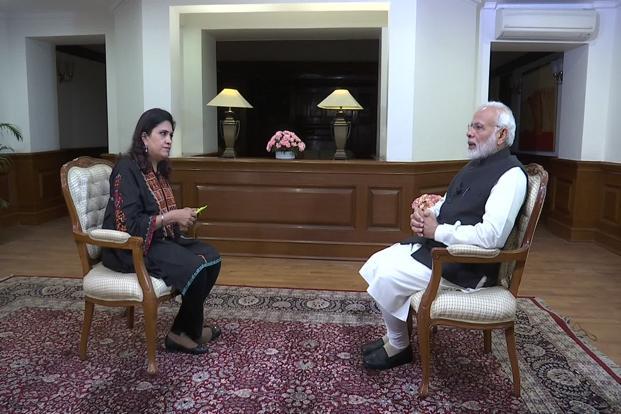Santosh Kumar Mohapatra
Prime Minister Narenda Modi is all set to face perhaps the biggest challenge of his political career in 2019 when he takes on the Congress, or a grand alliance led by it, at the general election. The challenge is greater, with the BJP suffering defeat at 5 Assembly elections, especially in three Hindi heartland states, and the UP by-election in 2018. The loss has scarred the party’s psyche and deepened the perception that the party will not be able to repeat the incredible performance of 2014.
The basic human instinct is to occupy and retain positions of power. Neither the BJP nor Modi would like to lose power. They would rather try to retain power by hook or by crook. That is why the PM chose to use the New Year to start an election campaign by means of televised interview given to ANI.
Modi touched upon a range of issues, from the construction of Ram temple at Ayodhya to demonetisation and the resignation of former RBI governor Urjit Patel, at the interview. His replies were aimed to give the impression that the government has performed magnificently, while Congress was corrupt and waning. But the reality is different.
The bitter truth is that politics today is bereft of ideology, principles and ethical values, and is being used merely as a conduit to power.
Modi said people were watching everything. If so, why is his government resorting to an advertisement blitzkrieg and he is frequently addressing rallies and meetings like a party president? His government has also spent over Rs 4,880 crore on advertisements across different media from 2014-15 to 2017-18. It means Modi wants to influence voters in favour of BJP by publicity and propaganda.
Modi claimed demonetisation was not a “jhatka”. In reality demonetisation was a political step to project Modi as a great crusader against black money and helped his party win the last Assembly election in Uttar Pradesh. None of the stated objectives of demonetisation was realised. It only helped the rich to convert black money into white.
If the Modi government is free from corruption, then how is it able to spend crores of rupees on meetings and rallies, and why are huge sums being transferred to the party’s account? Nobody donates without a quid pro quo arrangement. The BJP has earned more than Rs 1,000 crore in 2017-18 and is all set to be the biggest gainer of political funding. Corruption is as rampant as it was before.
Modi also said those who fled the country in his government’s tenure will be brought back, today or tomorrow. But how were they able to flee? Before leaving country, how was the lookout notice the CBI issued on Vijaya Mallya changed from “detain” to “inform”. The RBI’s latest report notes that fraud to the tune of Rs 41,200 crore was committed across Indian banks in 2017-18 — a 112 per cent increase over 2014-15.
Modi further said Urjit Patel had communicated his desire to leave 6-7 months before he resigned as the RBI governor citing personal reasons. But, Modi never said this when Patel resigned. It was actually unwarranted intervention by the finance ministry in the RBI’s functioning that made Patel resign.
On the BJP protesting against the SC verdict on Sabarimala, Modi said there are some temples that have their own traditions, where men can’t go. But he didn’t say the BJP had committed a big blunder by acting against the Supreme Court’s decision. It means he does not believe in scientific temper and that he is not prepared to fight superstition.
Modi has also talked much about development. But it is the rich who have become richer at the cost of the poor, as 1 per cent of people garnered 73 per cent of wealth in 2017. In reality, development has declined and India has fared poorly on international indices for hunger, happiness, human development and human capital. In his New Year’s speech Modi either evaded the truth or spoke half truths to hoodwink masses.
The writer is an Odisha-based columnist. Views are personal. e-Mail: skmohapatra67@gmail.com.
